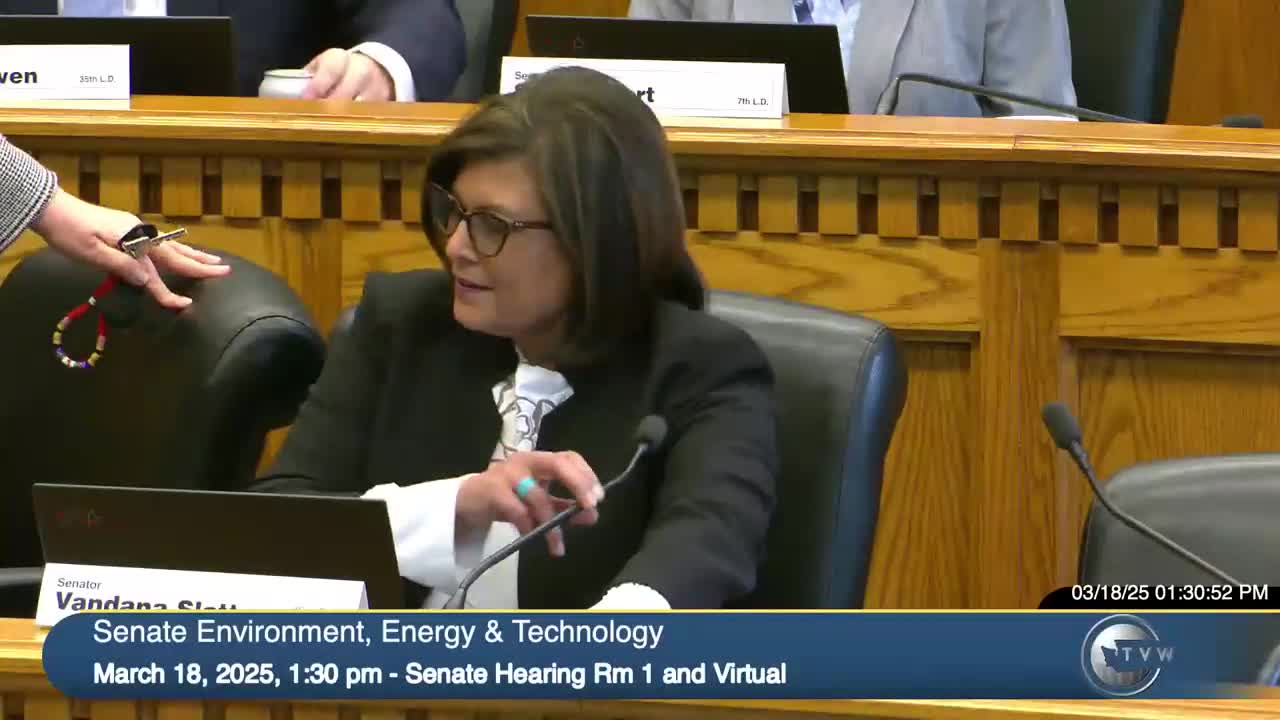Article not found
This article is no longer available. But don't worry—we've gathered other articles that discuss the same topic.
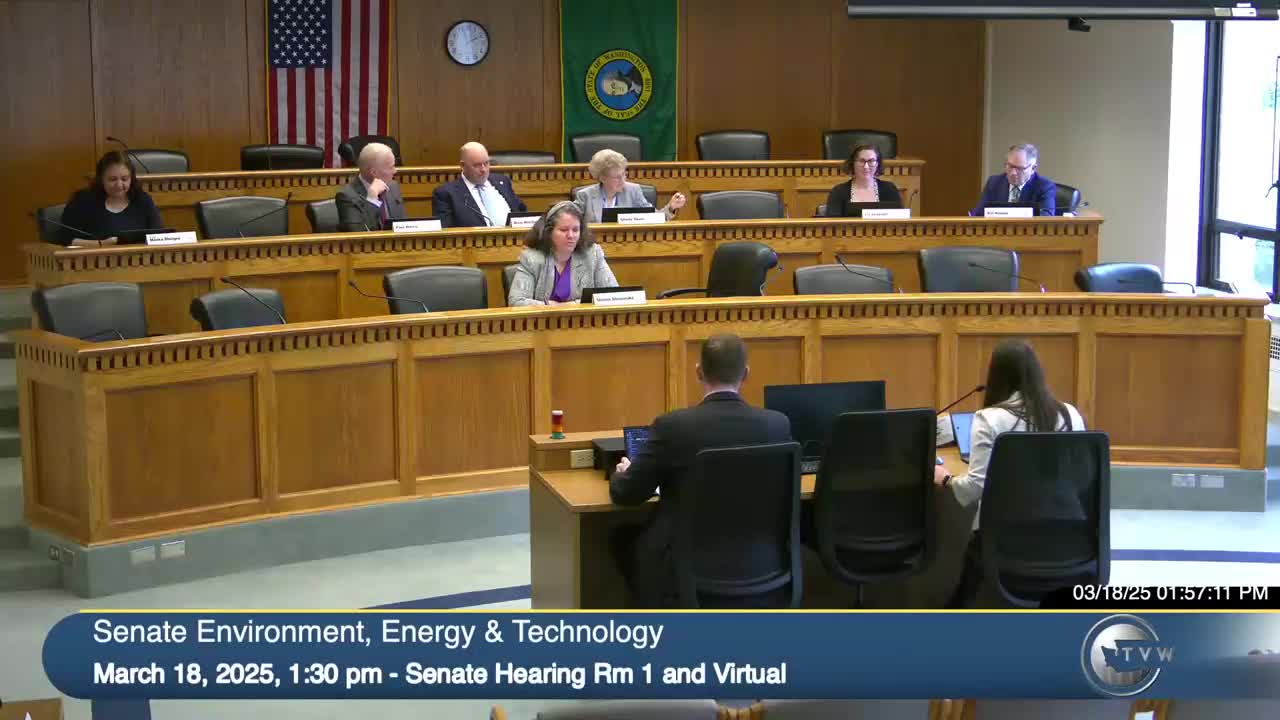
HFC bill advances amid industry backing and agricultural concerns over refrigerant supply and retrofit costs
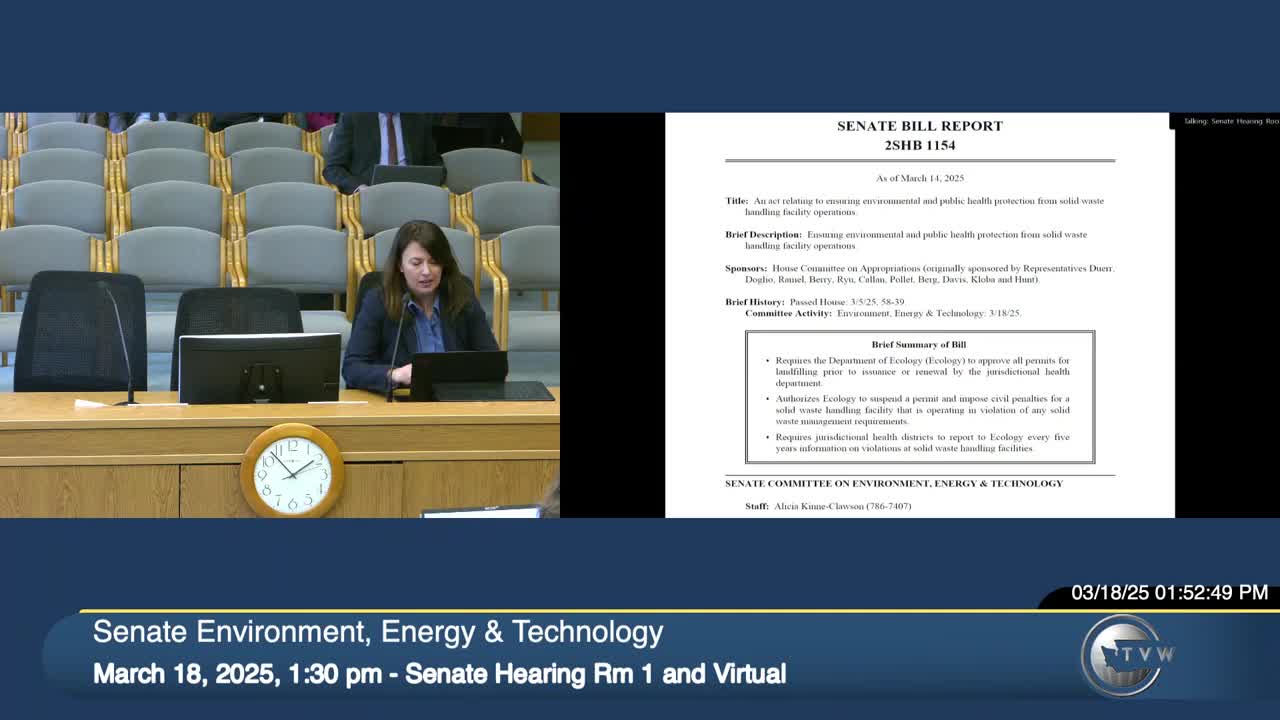
Bill to give Ecology greater oversight of landfills draws support and concerns over overlapping authority
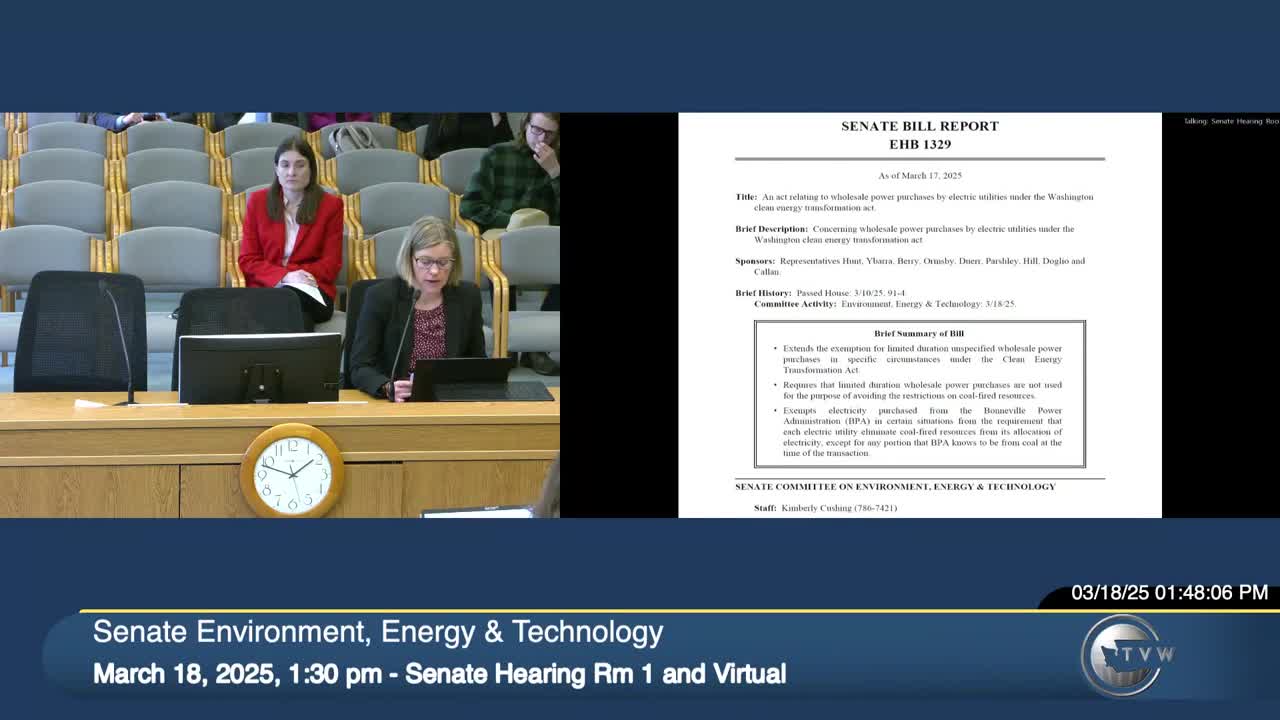
Bill would clarify how Bonneville purchases count under Washington’s Clean Energy Transformation Act
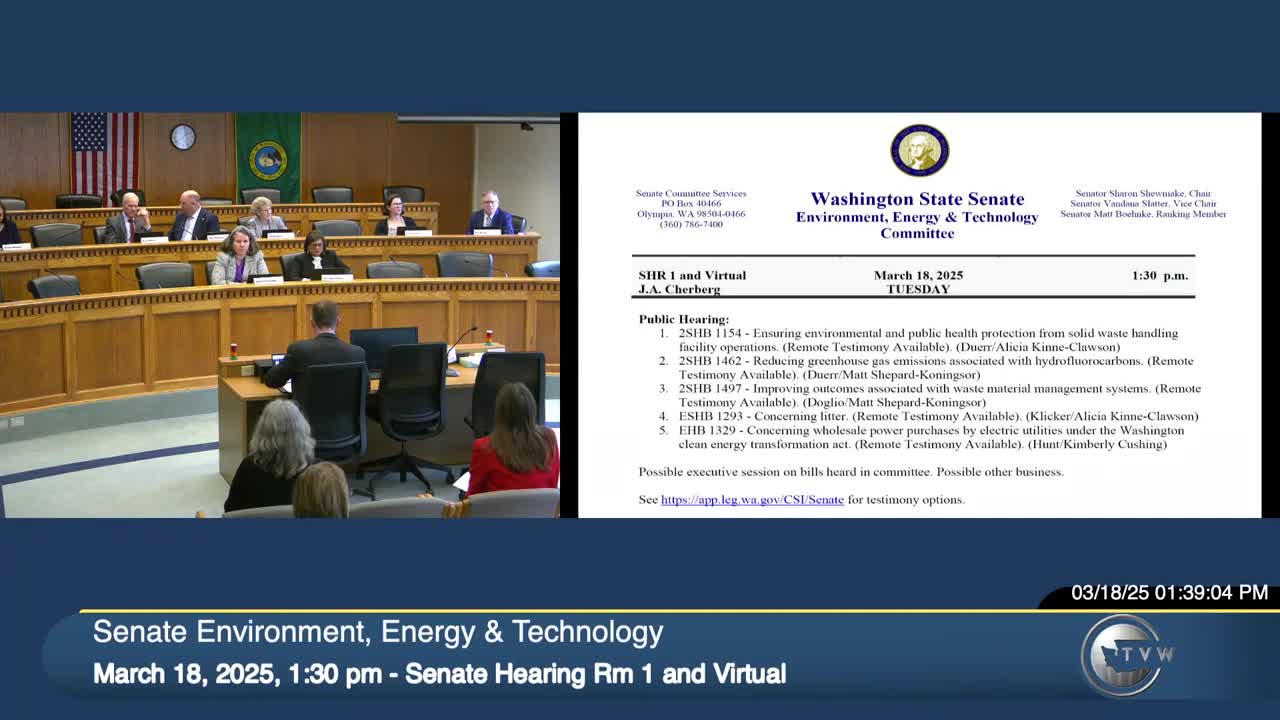
Committee hears bill to standardize bin colors, expand organics collection and require labeling
